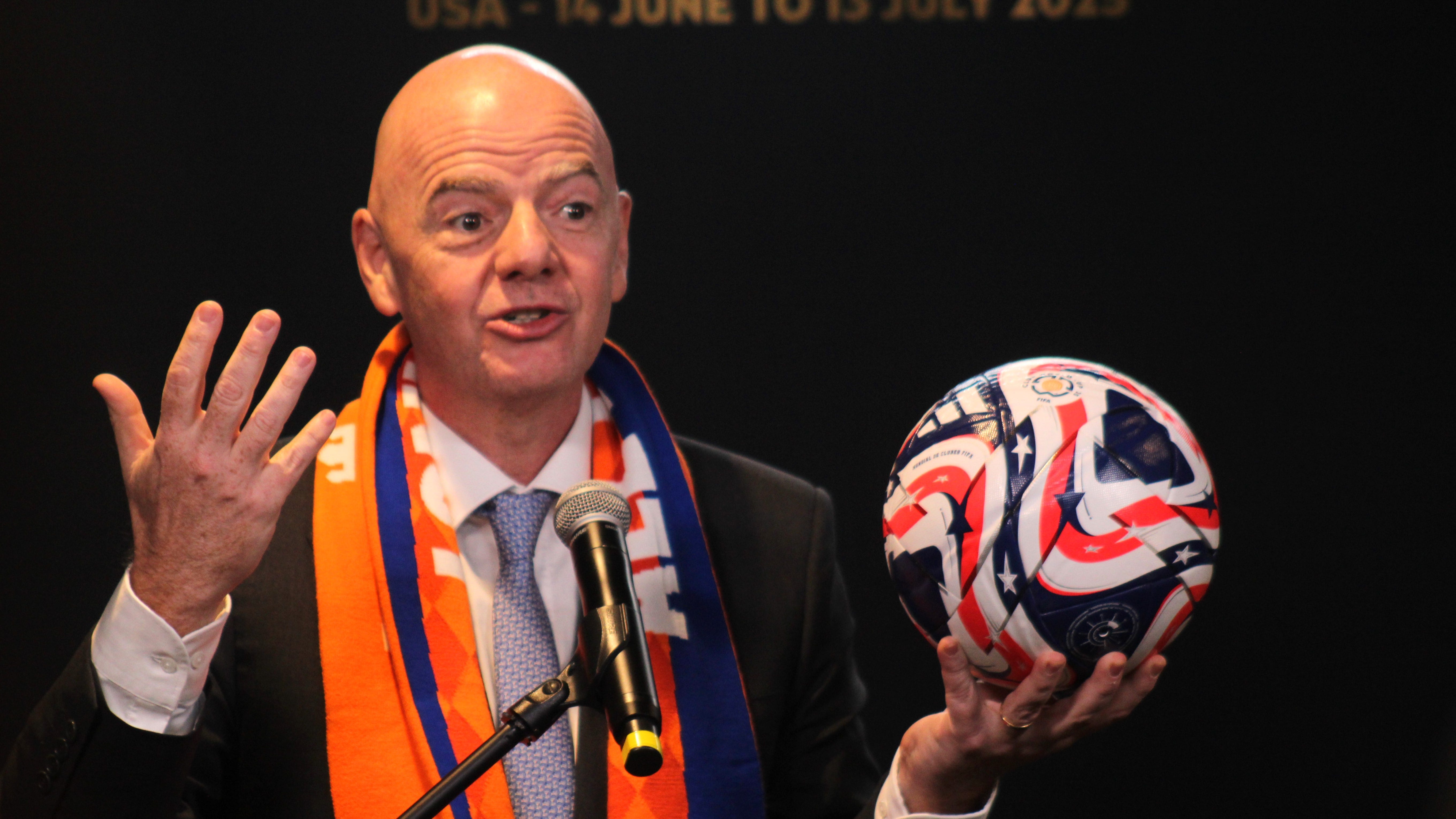3-minute read

FIFA president responds to news of slow ticket sales for Club World Cup
FIFA President Gianni Infantino calls on Americans to take advantage of Club World Cup being in the country.
- State and local emergency management coordinators have already begun meeting with managers of hospitals closest to MetLife Stadium to devise strategies for next summer’s big event.
- While nowhere near as big as next year’s World Cup, the soccer matches of FIFA Club World Cup 2025 at MetLife that stretch into mid-July will offer a test run for safety procedures.
With international soccer teams descending on East Rutherford this weekend for a tournament that will last a month, health officials, hospital workers and EMS crews will be using the event as a way to prepare for an even bigger gathering: the World Cup next summer at MetLife Stadium.
State and local emergency management coordinators have already begun meeting with managers of hospitals closest to MetLife Stadium to devise strategies for next summer’s big event, which will draw hundreds of thousands from across the globe to New Jersey and New York.
Worst-case scenarios are being planned for, as well as smaller but more common problems, from injuries on an escalator to brawling spectators, officials said.
Story continues below photo gallery.
While nowhere near as big as next year’s World Cup, the soccer matches of the FIFA Club World Cup 2025 at MetLife, stretching into mid-July, will offer a test run for safety procedures. Whatever happens during the nine matches, many of those on the front line of emergency medicine have already seen it.
After all, it’s North Jersey — with its already densely packed, diverse population, a venue that routinely hosts events for 80,000 fans, and a region where there are at least a dozen hospitals, including two major trauma centers, within a 10-mile radius of MetLife Stadium.
“If anything happens, whether it’s the World Cup or Taylor Swift, we’re ready,” said Jose Lozano, an executive vice president at Hackensack University Medical Center. “We’re only 5 miles away and we’ve been providing medical assistance there for years.”
Language barrier? Not a big deal here
The FIFA Club World Cup gets underway in East Rutherford on Sunday, June 15. The tournament features 32 teams from almost every continent that will play at venues across the U.S. MetLife will host nine matches, including the final on Sunday, July 13.
Unlike football teams, soccer clubs will bring an international following with them. Officials say any language barrier probably won’t be a big deal. North Jersey is one of the most diverse regions in the U.S. Nearly one out of every four New Jerseyans is foreign born. More than 125 languages other than English are spoken at home, from 1.3 million Spanish speakers to seven people who converse in Luxembourgish.
Many hospitals have translation services by phone or video monitors that can be rolled up next to a gurney.
“We take care of the airport, the seaport, two stadiums and a large, diverse city, so we’re in a position where it would take a lot to overwhelm us,” said Dr. Adam Fox, who oversees the trauma team at University Hospital in Newark, the only level-one trauma center in North Jersey.
Communicable disease risk is low
Communicable diseases are always a concern at international gatherings. But with major respiratory illnesses low in the Northern Hemisphere’s late spring and early summer and the venue being outdoors, risk of transmission is decidedly low.
Hospitals and health officials are already used to dealing with large crowds, with 82,500 fans descending on the stadium almost every week in the fall for Jets and Giants NFL games. Then there are the concerts, pro-wrestling matches and special events that bring tens of thousands to the stadium.
Hackensack University Medical Center is already prepping different aspects of its emergency services — from triage to decontamination units — in an emergency department that already has one of the highest patient volumes in the country.
They already see plenty of patients from MetLife events coming in after falls, car accidents, assaults, cases of heat stroke, heart attacks and asthma attacks, said Jessica Nussman, a spokeswoman.
Fans with flares and fireworks
Health officials are gathering “medical intelligence” — information about an event and the health problems that may arise.
Unlike most American sports fans, soccer fans are known to light flares and launch fireworks from the stands. Though they may be confiscated before entry, there is a possibility that some may go off and possibly injure people.
“So it’s a situation where we would prepare ahead of time for the possibility of receiving patients with burns,” Fox said.
Hospital staffs — especially those in the emergency department — often keep abreast of major gatherings. The staff at University Hospital was on alert one recent weekend when Prudential Center hosted UFC matches while a Portuguese festival was celebrated in the city.
There was no rash of emergencies from either event, but on-call staff members were prepared to come in if needed, Fox said.
“Situational awareness is always important,” Fox said. “You always want to know what’s going on in your city.”
https://www.gannett-cdn.com/authoring/authoring-images/2025/05/14/PNJM/83627899007-051425-fdu-graduation-001.JPG?auto=webp&crop=3749,2109,x0,y195&format=pjpg&width=1200
2025-06-15 06:06:18
